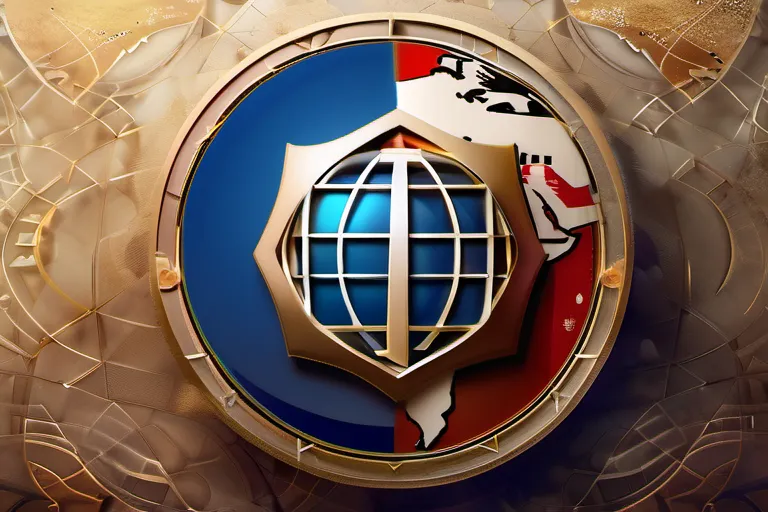Explore the key beliefs, doctrines, and teachings that define Raëlism.
Raëlism is a unique religious movement with a rich history and set of principles. In this article, we delve into the core tenets of Raëlism, providing you with a comprehensive understanding of this fascinating belief system.
The Creation Story: The Advent of Humanity
Imagine a world where humanity’s existence isn’t just a matter of chance, but a carefully orchestrated plan. In Raëlism, this idea takes on a profound form through the creation story that intertwines science and spirituality in a unique way. How could humanity have come into being if not by divine intervention?
The Raëlian creation story begins with extraterrestrial beings known as the Elohim, who are said to be our creators. But what exactly does it mean for humanity to have been created by beings from another world? It challenges traditional religious and scientific views, offering a new perspective on our origins.
These Elohim, in Raëlism’s interpretation, are not distant gods of ancient myths but actual extraterrestrial beings with advanced knowledge. They engineered humanity through genetic engineering and artificial reproduction to create a perfect being capable of self-improvement and progress. This raises the question: could our human capabilities and potential be greater than we realize?
The story of humanity’s creation by these celestial engineers is not just an interesting tale; it’s a call for understanding that our evolution isn’t complete. It suggests that our journey is far from over, and there are still untapped potentials waiting to be explored. Just like a blueprint left in ancient civilizations, the Raëlian teachings offer a roadmap for our future.
Through this lens, the creation story becomes more than just a myth—it’s a scientific and spiritual narrative that challenges us to look beyond what we know. It prompts us to question our place in the universe and consider the possibilities that lie ahead. Are we truly alone, or are there other beings out there shaping our destiny?
The Raëlian creation story is a fascinating blend of ancient wisdom and modern scientific understanding. It offers a fresh perspective on our origins and invites us to explore the vast universe beyond what we have seen.
The Elohim and Their Role in the Universe
The Elohim, in Raëlism, are more than just a group of celestial beings; they embody the concept of divine intervention and cosmic evolution that permeates this unique belief system. Are we mere inhabitants of a vast universe, or do these extraterrestrial creators play an active role in our existence? The answer, according to Raëlism, is both profound and empowering.
The Elohim are often likened to architects who designed not just the physical cosmos but also the intricate blueprints for life itself. They are depicted as beings of immense wisdom and benevolence, having created humanity with a specific purpose in mind. This creation story challenges traditional religious narratives by introducing a scientific perspective that integrates extraterrestrial intervention into the tapestry of human origins.
But the role of the Elohim extends far beyond just creation. They are also seen as guides and mentors on our journey towards self-improvement and enlightenment. Just as a teacher helps their students reach new levels of understanding, the Elohim assist humanity in its quest for knowledge and spiritual growth. Through various interactions and revelations, they continue to influence human progress and inspire us with wisdom that transcends mere material existence.
Moreover, the relationship between the Elohim and humanity is not one-sided. Raëlism encourages active engagement and communication with these extraterrestrial beings. It suggests that by understanding their teachings and following their guidance, humans can achieve a higher level of consciousness and ultimately reach a state of eternal life or immortality. This idea transforms our perception of existence from a linear path to an endless journey filled with purpose and potential.
So, as we ponder the nature of these celestial beings, let us consider: if they truly exist, what does their presence mean for our future? Could they be the key to unlocking the secrets of life and beyond?
The Raëlian Message: The Promise of Immortality
The Raëlian message of immortality offers a compelling promise: that humans can achieve physical eternity through cloning technology. Imagine a world where death no longer holds its terrifying grip—wouldn’t you be curious about how this future could unfold? This idea isn’t just a pipe dream; it’s the heart of Raëlism, which posits that human beings have a divine destiny to live forever.
According to Raëlists, the key to this eternal life lies in our cloning capabilities. But why stop at cloning? Wouldn’t we want to ensure that the essence of who we are—our memories, knowledge, and experiences—is carried forward too? This is where Raëlian science diverges from conventional approaches; it aims not just for physical immortality but also for a kind of spiritual continuity.
The promise of immortality isn’t just about extending our lives; it’s about understanding the profound implications this could have on society, relationships, and even our perception of time itself. Could we become so accustomed to eternal life that we lose the urgency and value of every moment? Or would immortality give us a greater appreciation for life’s fleeting nature?
But let’s not get ahead of ourselves. The question remains: how close are we to achieving this promised land? Raëlism doesn’t just present an abstract idea; it offers a framework that includes scientific research, ethical considerations, and philosophical musings. It challenges us to think about what it means to be human in the face of such radical possibilities.
In exploring the Raëlian message of immortality, we are compelled to question our very existence and purpose. Are we destined to be finite beings, or is there a greater potential within us that cloning technology might unlock? The answers aren’t clear, but the journey towards finding them promises to be transformative. As we delve deeper into this concept, we must ask ourselves: are we ready to embrace the possibilities of eternal life?
The Raëlian Ethos: Living in Harmony with Nature
Imagine living in a world where humanity thrives in perfect harmony with nature, where love and understanding are not just ideals but the fabric of our daily lives, and where sexual liberation is celebrated as a natural expression of human freedom. This utopian vision forms the core of Raëlian ethos—a guiding philosophy that seeks to reframe our relationship with the environment and each other.
For Raelians, nature is not merely a backdrop but a partner in their journey toward enlightenment. They believe that by adopting sustainable practices, we can minimize our impact on the planet while maximizing its potential for life. This approach extends beyond just environmental stewardship; it encompasses a holistic view of health and well-being, advocating for organic diets, minimal use of technology, and a focus on natural healing methods.
But the Raëlian ethos goes further than just green living. It emphasizes peace, love, and sexual liberation as essential components of human existence. In their view, peace is not merely the absence of conflict but a state where every individual thrives in harmony with others. Love, they argue, is more than just an emotion; it is a force that binds us together, encouraging mutual respect and understanding.
Sexual liberation, on the other hand, is seen as a natural part of human expression, free from the constraints imposed by societal norms. For Raëlians, sexual relationships are celebrated as forms of love, fostering deeper connections and personal growth. This liberating view challenges traditional notions of morality, emphasizing freedom over conformity.
In essence, living in harmony with nature according to Raëlism is about much more than just environmental conservation; it’s a lifestyle that seeks to transform our relationships with the world around us and within ourselves. By embracing this ethos, Raelians aim to create a society where everyone can thrive, free from the constraints of outdated beliefs and ready to embrace the future with open arms.
Raëlism and Its Critics: A Balanced Perspective
Understanding the Central Principles of Raëlism: A Comprehensive Guide
Raelism, as with any new belief system, has faced its fair share of critics and controversies. Have you ever wondered why some find it so compelling while others dismiss it outright? Let’s delve into a balanced perspective on this intriguing movement.
- Why the Criticism?
Critics often point out that Raëlism is based on the teachings of Claude Vorilhon, also known as Ra, who claimed to have been visited by extraterrestrials in 1969. But isn’t it true that many spiritual or religious movements start with a unique and transformative experience? The core question here is whether such experiences can be scientifically verified or remain personal and subjective.
- The Rational Response
Defenders of Raëlism argue that its teachings are rational and evidence-based. They emphasize the scientific approach to understanding human origins, which differs from purely religious dogmas. For instance, if we view Raëlism as a hypothesis rather than a faith, it invites us to explore the vast universe and our place within it with an open mind.
- The Ethical Implications
Another point of contention is the ethical implications of Raëlism. Critics argue that its stance on genetic engineering and cloning could lead to unethical practices. But isn’t this a question for society as a whole? Shouldn’t we engage in discussions about the ethics of new technologies, rather than dismissing them outright?
- The Call for Dialogue
Ultimately, what Raëlism offers is not just a set of beliefs but an invitation to explore the unknown. It challenges us to think critically and consider the role of science in our spiritual lives. In this journey, it’s crucial that we maintain open dialogue, acknowledging both the strengths and weaknesses of any belief system.
By exploring these perspectives, we can gain a deeper understanding of Raëlism and its place in today’s complex world. Whether you embrace or reject its teachings, engaging with such beliefs provides valuable insights into human nature and our quest for knowledge.
The Future of Raëlism: A Look Ahead
As we delve into the future prospects of Raëlism, it’s crucial to consider its potential impact on humanity and the universe at large. Could this belief system, which emerged from a controversial claim in 1974, truly offer insights that could shape our destiny? Raelian teachings suggest that life on Earth was created by aliens, which presents an intriguing perspective on our origins. How might this knowledge influence scientific research and ethics?
Imagine a world where Raëlism’s emphasis on genetic engineering and cloning becomes mainstream. Would humanity embrace the promise of extending human life or would it face ethical dilemmas? The idea that we could one day live alongside extraterrestrial beings raises more questions than answers. Are we ready to coexist with our celestial creators, or will such knowledge lead to conflict?
Moreover, Raëlism’s focus on technological advancement and space exploration hints at a future where humanity might colonize other planets. Could this be the key to our survival as a species in an increasingly crowded galaxy? Or is it just a utopian dream that distracts us from solving Earth’s pressing problems?
The central principle of Raëlism—learning to coexist with extraterrestrial beings—poses a profound challenge. How would humanity adapt its social and political structures to accommodate such knowledge? Would we find unity in our shared cosmic heritage or fracture into factions based on religious beliefs? These questions are not just philosophical; they could reshape the fabric of society.
As we ponder these ideas, it’s clear that Raëlism isn’t merely a fringe belief system. It offers a compelling narrative that could influence the trajectory of human civilization. Will Raëlism play a role in humanity’s journey towards a new era of understanding and coexistence? Only time will tell, but its potential impact is undeniable.
So, as we look ahead, let us consider the possibilities that Raëlism presents. Could it be the spark that ignites a new era of cosmic awareness and cooperation? Or will it remain an intriguing yet distant dream? The answers lie in our collective willingness to explore these ideas further.
Conclusion
 By the end of this article, you will have gained valuable insights into the central principles of Raëlism, enabling you to appreciate its significance and unique perspective on life, the universe, and humanity.
By the end of this article, you will have gained valuable insights into the central principles of Raëlism, enabling you to appreciate its significance and unique perspective on life, the universe, and humanity.











